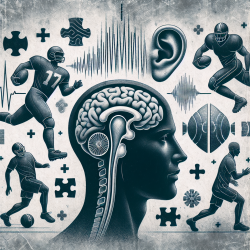Autism Spectrum Disorder (ASD) presents a unique set of challenges, particularly in the realm of executive functions (EFs). A recent study, Deficits in executive functions among youths with autism spectrum disorders: an age-stratified analysis by S.-F. Chen et al., sheds light on how these deficits manifest across different age groups. Understanding these nuances can significantly enhance the effectiveness of interventions provided by practitioners.
Key Findings from the Research
The study evaluated 111 youths with ASD and 114 typically developing (TD) controls using the Cambridge Neuropsychological Test Automated Battery (CANTAB). The key EFs assessed included:
- Spatial Working Memory (SWM)
- Visuospatial Planning (Stockings of Cambridge, SOC)
- Set-Shifting (Intradimensional/Extradimensional Shift Test, I/ED)
- Short-term Memory (Digit Span)
Results indicated that youths with ASD performed worse on all tasks compared to TD controls. However, the extent of these deficits varied with age:
- Children (8-12 years): Showed significant impairments in visuospatial planning and set-shifting.
- Adolescents (13-18 years): Demonstrated improvements in visuospatial planning and set-shifting, but continued to struggle with working memory.
Practical Applications for Practitioners
These findings offer several actionable insights for practitioners working with children and adolescents with ASD:
1. Tailored Interventions Based on Age
Given the age-dependent nature of certain EF deficits, interventions should be tailored accordingly. For younger children, focus on improving visuospatial planning and set-shifting skills through targeted activities. For adolescents, continue to address working memory deficits while leveraging their improved planning and set-shifting abilities.
2. Graded Task Demands
The study found that task difficulty significantly impacted performance. Practitioners should design therapeutic activities with graded task demands to progressively challenge and improve EFs. For instance:
- Start with simple memory tasks and gradually increase complexity.
- Use step-by-step problem-solving exercises to enhance planning skills.
3. Consistent Monitoring and Adaptation
Regular assessment of EF performance can help track progress and adapt interventions as needed. Utilize standardized tools like the CANTAB to obtain objective data on the child's EF abilities.
Encouraging Further Research
While this study provides valuable insights, continued research is essential to deepen our understanding of EFs in ASD. Practitioners are encouraged to stay updated with the latest research and incorporate evidence-based practices into their therapy sessions.
To read the original research paper, please follow this link: Deficits in executive functions among youths with autism spectrum disorders: an age-stratified analysis










